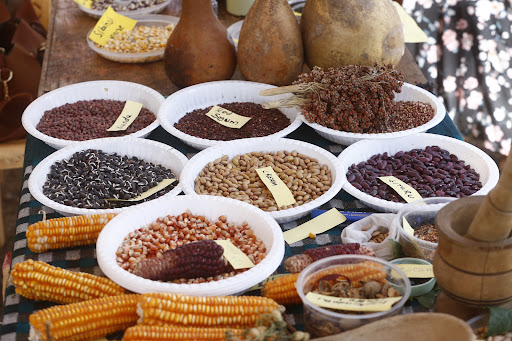
The Kenya Plant Health Inspectorate Service has called for more stringent laws to punish those found with counterfeit seeds.
This comes as the country faces an alarming rise in fake seeds undermining agricultural productivity and food security.
Kephis managing director Theophilus Mutui said one of the organisation’s mandate is to ensure farmers have access to quality seeds.
He spoke during the 12th Seed Trade Association of Kenya congress, which he described as timely in addressing seed quality and availability to farmers.
“Affordable, high-quality seed is essential for our farmers,” Mutui said.
“It is important to sensitise farmers on the value of buying seeds only from registered agro-dealers to avoid dangers of counterfeits.”
Counterfeit seeds remain a major challenge, noting that many farmers who unknowingly plant fake seeds end up with no harvest after months of waiting. This, he said, contributes directly to the worsening food insecurity.
“Kephis is intensifying its efforts to track down and hold accountable those responsible for selling fake seeds. We are working closely with the relevant authorities to ensure these unscrupulous traders face the full force of the law,” Mutui said.
He said Kephis is already involved in multiple ongoing cases related to counterfeit seeds.
For instance, in Kitale and Njoro, there are pending court cases and recent arrests in Meru have exposed traders packaging and colouring grains to sell as counterfeit seeds.
“We are warning anyone dealing in fake seeds that they will be taken to court and the law will deal with them accordingly,” Mutui said.
He accused agrovets of contributing to proliferation of fake seeds.
Some agro-dealers mark up seed prices excessively, making legitimate seeds unaffordable for farmers, who are often tempted to buy cheaper counterfeit alternatives.
“The problem often arises when there is a shortage of preferred seed varieties and the genuine ones are too expensive. Farmers, in desperation, turn to cheaper options, which are often fake,” Mutui said.
To address this, he called for urgent amendments to seed laws to increase minimum and maximum penalties for those caught selling counterfeit seeds.
“Currently, the fine for counterfeit seed dealers can be as low as Sh100,000, which is far too little considering the scale of the problem. In one case in Njoro, a dealer was caught with fake seeds worth Sh13 million but was only fined Sh100,000. This is clearly not a sufficient deterrent,” he said.
Mutui suggested that penalties be linked to the value of the counterfeit seeds involved, proposing that the fine be a multiple of the value of the fake seeds.
“Let’s ensure the penalty is substantial enough to act as a real deterrent. This issue should not be taken lightly. We need the highest penalties to stop these criminals from repeating their actions,” he said.
Kephis deputy director Ephraim Wachira said the agency is stepping up efforts to combat counterfeit seeds, adding that it is currently handling 12 active cases in Kitale, Njoro and Meru.
Some of these cases, he said, have already been resolved, with fines of up to Sh300,000 issued.
However, he argued that this is still far below the maximum fine of Sh1 million, suggesting that fines should be scaled up in line with the severity of the crime.
“We are exploring the possibility of linking fines directly to the total value of the counterfeit seeds in circulation. For example, if someone is caught selling fake seeds worth Sh3 million, the fine could be three or four times that amount, making it a stronger deterrent,” Wachira said.
Mutui also addressed the challenge of seed availability, particularly in areas with short growing seasons, such as Meru.










